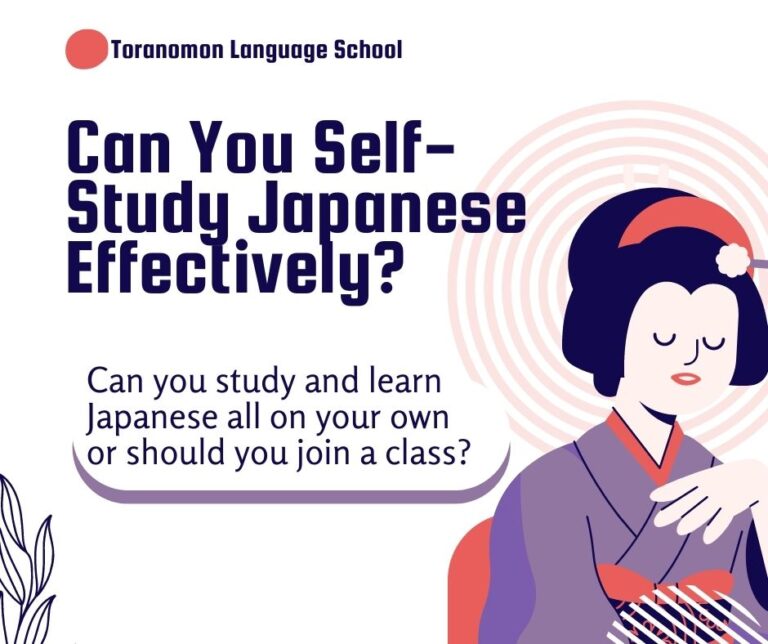Most people who move to Japan are interested in learning Japanese, but many may be hesitant to fork out a lot of money for lessons. The question is – can you study and learn Japanese all on your own?
What are the good things about studying by yourself?
There are some benefits to studying alone. These are:
- It’s cheaper
- You can go at your own pace
- You can choose the materials that work best for you
- It can be more efficient for learning vocabulary
We actually recommend that you self-study vocabulary. You can use flashcards, a smartphone app or whatever works for you. After all, if you simply hear the vocabulary in a class and never revise it at home, it will be hard to retain the words. A good language class won’t spend a lot of time on vocabulary, but more time on output, so it’s good if you can devise a system of self-studying vocabulary.
You can also practice listening at home by yourself, by listening to podcasts and watching Japanese TV shows with subtitles. If you’re interested in podcasts but want more support, we do offer a podcast workshop that you can take at your own pace.
What are the bad things about studying by yourself?
- It might be harder to feel motivated to keep up the study
- You rely on strangers and the internet to answer your questions
- You might lack structure and learn in a disorganised manner
- It’s hard to get good speaking practice in
Grammar can be self-studied, but you may have many questions and the most efficient way to have these answered is by having a teacher to ask. We find that the best thing to do regarding grammar is to preview the grammar at home, and then practice it in class with a teacher whom you can ask for help. If you don’t preview, it’s okay, but you might end up too confused to practice it properly in the class, so it’s good to have all your questions ready at the beginning.
If you take private lessons, you can prepare written practices for your teacher to correct, so that your lesson can be spent mostly on what you cannot self-study – speaking. Even in a group class, you should aim to practice speaking aloud as much as possible. This is impossible when self-studying, as even if you find a friend to talk to, they are not a teacher and can only take you so far.
What is the best way to master Japanese?
Overall, we recommend a mixed approach. Find a class that is right for you, whether it is a group for the social aspect, or private if you need an individualized plan. Use the class to ask questions and gain confidence speaking, along with practicing the correct pronunciation. From your teacher you will learn “real” Japanese, the speech people use in every day life.
Then practice your self-study skills by learning vocabulary, kanji, katakana and hiragana at home. Practice listening through podcasts, TV or music, practice reading through children’s books, or adult books or newspapers once you reach that level.
The more advanced your level, the more you can self-study, by finding friends to converse with in real life, joining groups that operate in Japanese, and so on. But if you are new to Japan without much language skill, it’s best to join a class in order to gain a solid foundation in the language first.

